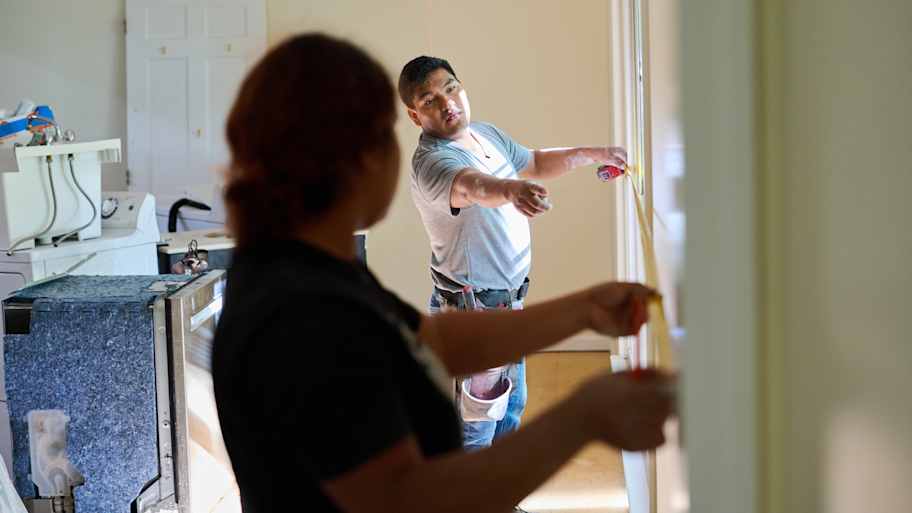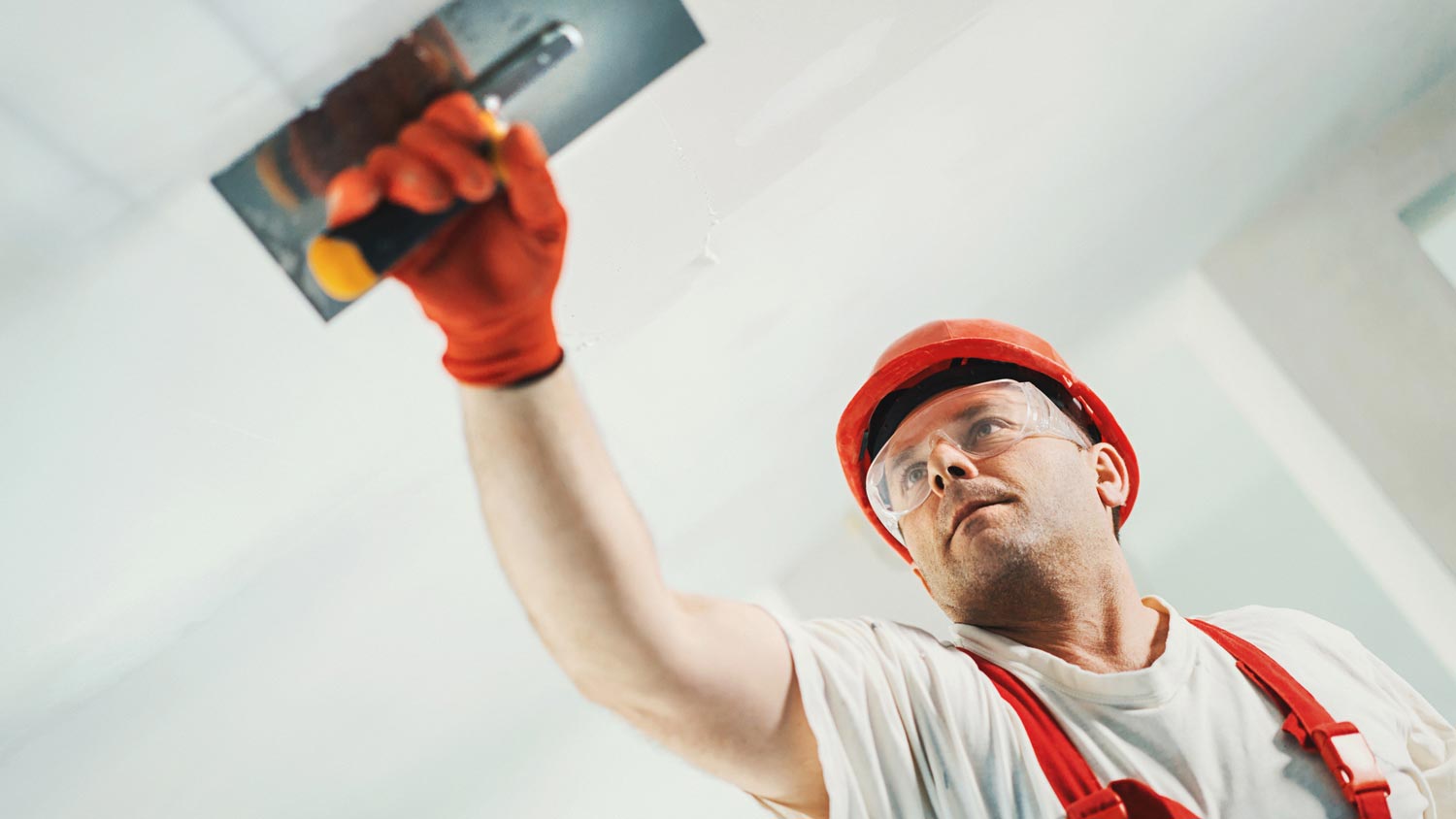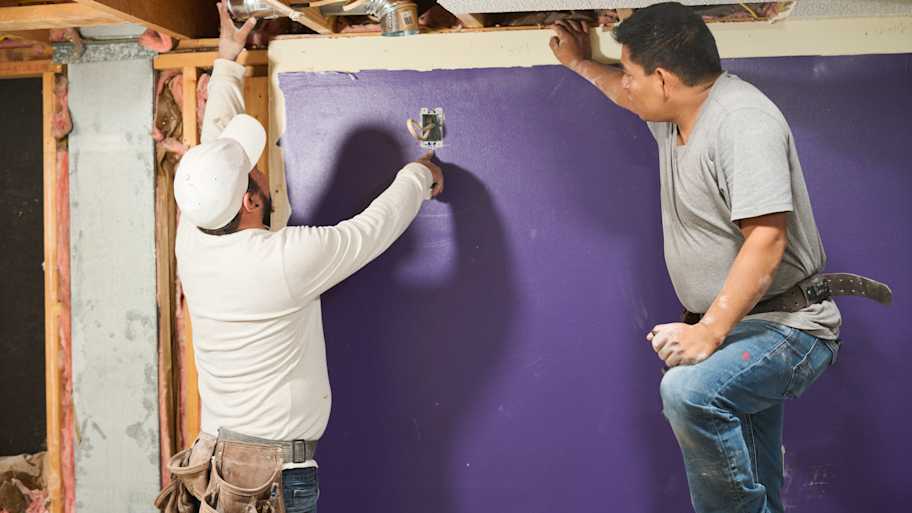How Much Does a Pre-Drywall Inspection Cost? [2025 Data]
A pre-drywall inspection costs $300 on average, and most people pay between $200 and $400, depending mostly on the size of the home.


A pre-drywall inspection is like seeing a live X-ray of your new home. It helps you make sure your house is built to the standards from the inside out. Depending on the size of the home, your location, and the company you work with, pre-drywall inspections can cost anywhere from $100 to $600. The average cost is somewhere around $300.
This isn’t a legally required inspection, but it has the potential to catch serious issues before the walls are installed, giving you a chance to fix them before they become homeowner headaches later on.
Examine the cost factors of pre-drywall inspections, their importance when buying or renovating a home, and tips on finding the right inspector for you.
What Does a Pre-Drywall Inspection Cover?
The purpose of a pre-drywall inspection is to get a complete look at the work done on a new construction home before finishing it with walls. The pre-drywall period refers to a home that hasn’t yet had the walls put in but has the main components already installed, including the following:
Doors
Windows
Foundation
Sub-floor
Plumbing
Electrical
Wall and roof structural components
Spotting issues with any of these elements becomes much harder after the walls are up.
Hear it from our customers:
"My home inspector was extremely thorough and professional. He found several significant defects that would have been very expensive to remediate post-drywall, as well as a large number of 'punchlist' type items...which could have been significant if they had not been fixed at this stage of construction. The fee was reasonable and paid for itself several times over with the repairs that were made."
— Paul O., Albuquerque, NM
Pre-Drywall Home Inspection Cost Factors

You’ll likely need several contractors to carry out a home-building project, all of whom do different kinds of work that fit together like puzzle pieces. A pre-drywall inspection acts as the last check of this work, ensuring everything is looking good before installing drywall and moving in. So, how much does a pre-drywall inspection cost? There are a number of factors that affect the grand total.
Home Size
As is the case with any other home inspection cost, bigger properties tend to command a higher price, as there’s more labor involved in inspecting larger areas. You can expect the pre-drywall inspection to be proportional to the home’s overall size—so an inspection on your new condo might only cost around $100, while a multistory, detached house could run you as much as $600.
| Home Size (Square Feet) | Average Pre-Drywall Inspection Cost |
|---|---|
| >1,000 | $100 |
| 1,000 | $200 |
| 1,500 | $300 |
| 2,000 | $400 |
| 2,500 | $500 |
| 3,000 | $600 |
Home Location
Pre-drywall home inspections tend to be fairly predictable from city to city and state to state, but certain areas with a higher cost of living (think New York City, Los Angeles, or San Francisco) may demand higher prices. This is largely because labor costs will scale based on the cost of living.
| State | Pre-Drywall Inspection Cost |
|---|---|
| California | $430 |
| Florida | $310 |
| Georgia | $270 |
| Illinois | $290 |
| Michigan | $280 |
| New York | $370 |
| North Carolina | $290 |
| Ohio | $280 |
| Pennsylvania | $280 |
| Texas | $280 |
Type of Issue
The most important takeaway from your pre-drywall home inspection is the final report that your professional provides you with. Hopefully, this report states that nothing out of the ordinary is found, giving you the go-ahead to pop in your drywall with confidence. However, it may instead point out issues of concern. While no one wants to discover problems in their new build, this report at least gives you a chance to fix them before putting on the finishing touches.
While the problems in the table below won’t drive up the cost of your pre-drywall inspection, they are additional costs that you might need to budget for to rectify the issues your home inspector finds.
| Home Issue | Average Cost Range to Fix |
|---|---|
| Cracked, misaligned, or shifted foundation | $2,000–$10,000 |
| Electrical system issues or failure | $700–$15,000 |
| Failing seals on windows or doors | $170–$700 |
| HVAC system failure | $100–$13,000 |
| Leaky basement | $10,000–$50,000 |
| Mold from water leaks or poor ventilation | $500–$4,000 |
| Plumbing system failure | $275–$3,000 |
| Warped, misaligned, or uneven flooring | $100–$10,000 |
While no homeowner wants to find these issues at all, locating them before the walls go up will end up saving you money in the long run. A great pre-drywall inspection is thorough, and the home inspection report should reflect that. You can expect to pay more for professionals who value high-quality inspection and reporting.
Photos and Videos
It’s common for inspectors to take photos and videos for their own reference during a pre-drywall inspection. However, some inspectors will also provide these to the client as visualizing tools. Having these makes it much easier to know where wiring, plumbing, studs, and HVAC ducts are located in the future without having to open up your walls, saving you the trouble of finding them again if you need to make repairs or adjustments after putting the walls in. This service sometimes comes at an extra fee.
Household Systems
The complexity of a house’s components and systems can affect the overall cost of a pre-drywall inspection. Houses with more systems running through them (such as HVAC, natural gas, gas lines for appliances, etc.) will naturally take more time to inspect properly. This might result in a higher charge for the pre-drywall inspection.
Cost of Common Pre-Drywall Inspection Add-Ons
While you’re budgeting for your pre-drywall inspection costs, you may want to consider the following costs, as well. These projects can help you get the maximum value out of your home, and they’re ideal add-ons before you put up your walls. Note that additional inspections are usually required by law to proceed with your home build, so you’ll likely need these to complete your project.
Energy efficiency audit cost: $200–$700
Electrical inspection cost: $100–$400
Plumbing inspection cost: $100–$500
HVAC inspection cost: $70–$500
Soundproofing cost: $1,000–$2,700
Spray foam insulation cost: $1,400–$4,300
DIY Pre-Drywall Inspections vs. Hiring an Expert
Pre-drywall inspections aren’t legally required—so does that mean you can simply perform your own inspection? For those with lots of knowledge of contract labor and the systems that go into building a home, it’s completely possible to do your own pre-drywall inspection to check the work your contractors have done so far. Doing so will save you an average of around $300. However, a professional inspector provides a neutral, objective look. They will also bring professionalism and expertise to the inspection, potentially spotting things that you might overlook.
Your best option is to hire a professional unless you have an extensive background in construction. An expert opinion from a local home inspector only costs around $300 on average, and it could end up saving you thousands over a DIY inspection if you miss something and have to backtrack after your walls are up.
How to Save Money on a Pre-Drywall Inspection
While pre-drywall inspections aren’t terribly expensive, they are an additional cost to consider when you’re already likely paying hundreds of thousands of dollars to build your new home. There are a few things you can do to save some money on your inspection costs.
Focus on key areas. You can potentially save money by having your inspector focus on specific things in your home, like the foundation and structural components. You might not get a complete picture of how well-built your home is, but you will likely save money as the inspection won’t take as long.
Package inspections together. New construction requires several inspections, and some home inspectors that offer all of them will offer discounts if you guarantee them more work. Consider asking for a pre-drywall inspection, plumbing inspection, and electrical inspection as a package deal from a single inspector.
Forgo picture and video results. Pictures and videos are nice to have, but they’ll likely drive up the cost of your inspection a bit. Take your own photos and videos for your records to save.
Don’t rely on your builder’s inspection. Many builders will offer pre-drywall inspections, but you should always spend a bit more and schedule one with a third-party company. Builders aren’t always going to be entirely subjective, so bring in your own professional to avoid costly issues down the road.
Get multiple quotes. Finally, shop around and get quotes from at least three home inspectors in your area to find the lowest price or the best value for your money.
How Angi Gets Its Cost Data
Home is the most important place on earth, which is why Angi has helped more than 150 million homeowners transform their houses into homes they adore. To help homeowners with their next project, Angi provides readers with the most accurate cost data and upholds strict editorial standards. We extensively research project costs to develop the pricing data you see, so you can make the best decisions for you and your home. We rely on reputable sources, including the U.S. Bureau of Labor Statistics, academic journals, market studies, and interviews with industry experts—all to ensure our prices reflect real-world projects.
Want to help us improve our cost data? Send us a recent project quote to costquotes@angi.com. Quotes and personal information will not be shared publicly.
Frequently Asked Questions
To prepare for a pre-drywall inspection, make sure to schedule the inspection before your drywall (and preferably insulation) is installed, but after all ductwork, plumbing, electrical wiring, and framing are in. You should also print a copy of your floor plan for your inspector, which they’ll use to make sure the build matches up. Lastly, try to clear the home of major obstacles (tools, large stacks of material, etc.) to allow the inspector access to the places they need to check.
Any good contract company will do their own post-work inspection and walkthrough with their clients, but you shouldn’t consider these a replacement for a third-party pre-drywall inspection. Even a small mistake or oversight can lead to big issues down the line. Having an objective, neutral professional perform the inspection will help to make sure nothing goes overlooked.
Part of a pre-drywall inspector’s job is ensuring all work done on the home is up to code. If they discover anything that doesn’t comply, these fixes may be required by the local government or by the lender financing the build. Aside from these mandatory post-inspection home repairs, it’s technically optional to make any other repairs—though it’s a good idea to remain proactive about them to avoid a bigger issue in the future.















